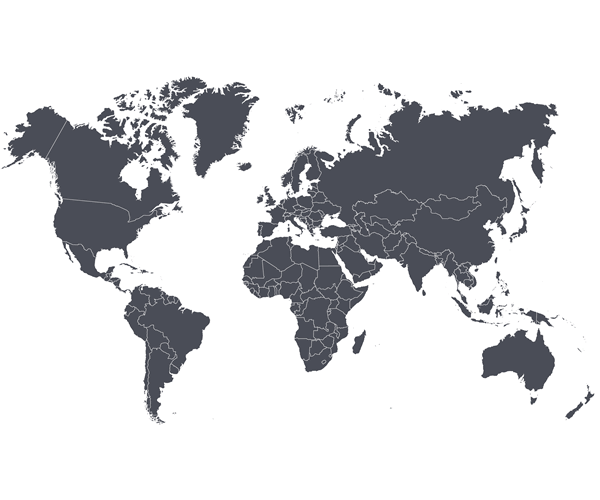LLM Global Environmental Law & Governance
ApplyKey facts
- Start date: September & January
- Study mode and duration: 12 months full-time; 24 months part-time
Scholarships: EU Engagement Scholarships worth £10,000 available to applicants from EU countries
Joint 25th in the world & 4th in UK in Times Higher Education Impact Rankings 2024, for top universities pursuing the UN Sustainable Development Goals
Specialise: choose to graduate with an LLM in Global Environmental Law & Governance with a specialisation in Ocean Law
Study with us
Studying our LLM in Global Environmental Law & Governance you'll learn to critically appraise and creatively contribute to global environmental law and governance, giving you the skills and expertise you need to pursue a career in this area.
- experience a tailored and bespoke teaching environment where you'll be working closely with your peers and faculty
- combine cutting-edge theoretical knowledge and practice in thematic areas in global environmental law and governance
- apply undertake a work-based placement or consultancy project with a world-leading organisation gaining practical experience of your skills and knowledge
- you can apply to do a 60-credit enhanced research proposal, professional internship or a professional project at the end of the LLM, including with the UN Special Rapporteur on Climate Change and Human Rights, as well as other prominent international organisations and associations, instead of a traditional dissertation
Why this course?
Today’s increasingly polarised yet globalised world places unprecedented demands and challenges on environmental law and governance. The LLM in Global Environmental Law & Governance offers a unique opportunity to understand how environmental law develops and operates across different levels of governance by:
- focusing on critical areas of environmental law including: biodiversity; food and agriculture; water and oceans; climate change and energy; environmental justice; human rights and the rights of nature; and sustainable development
- offering you the opportunity to graduate with the LLM in Global Environmental Law & Governance with a specialisation in Ocean Law, should you choose to take electives in Ocean Law
- bringing together cutting-edge research and practice in global environmental law and governance, including representing countries and international organisations before international tribunals
The programme draws both on cutting-edge academic research on global environmental law and governance and on first-hand professional experience at different levels, including representing countries and international organisations before international tribunals.
Global dynamics of environmental law
In the current global climate, there's a growing sense that the legal practices of indigenous peoples and local communities, business entities, local administrations, and transnational environmental practitioners are increasingly relevant for environmental governance.
The LLM in Global Environmental Law & Governance provides such innovative and transversal perspectives, moving beyond the traditional approach to teaching international, regional, EU and domestic environmental law in isolation one from another. In fact, you'll focus on the global dynamics of environmental law and look at the mutual influences and interactions among different regulatory levels.
Internship or professional project dissertation
A unique aspect of the programme is the opportunity to apply to do an internship or professional project dissertation with a member of Strathclyde Law School’s Professional Practice Network.
The network includes our teaching team’s broad global network. Students have previously secured placements with the UN Environment Programme, the UN Development Programme and the UN Special Rapporteur on Human Rights and Climate Change.
Students can also apply to set up their own professional work-based dissertation option to enhance and develop advanced employability skills in an area relevant to their studies.
Option to specialise in Ocean Law
A further unique aspect of this programme is the ability for students to specialise in Ocean Law.
Depending on the elective modules you select, you can choose to graduate with an LLM in Global Environmental Law & Governance with a specialisation in Ocean Law.
Electives are chosen when you arrive on campus. You'll receive advice and guidance from course staff in making this choice.

Meet our experts
Your learning will be developed by some of the world’s foremost experts – not only in academic research but also in the fields of policy and practice.
The current teaching and supervision team includes:
Dr Antonio Cardesa Salzmann, Lecturer in EU Environmental Law at the Strathclyde Law School
Professor Michael Mehling, Professor at the Strathclyde Law School and Deputy Director of the Centre for Energy and Environmental Policy Research at the Massachusetts Institute of Technology (MIT)
Professor Elisa Morgera, Professor of Global Environmental Law and the UN Special Rapporteur on Climate Change and Human Rights (since May 2024)
Dr Mara Ntona, Lecturer at the University of Strathclyde Law School
Professor Francesco Sindico, Professor of International Environmental Law at the Strathclyde Law School @ Co-Chair of the IUCN World Commission on Environmental Law Climate Change Law Specialist Group
Dr Saskia Vermeylen, Reader at the University of Strathclyde Law School
Public International Law and the Environment
This class will introduce you to the foundations of public international law, including its subjects, sources, principles and measures of implementation. It will address how this body of law has evolved over time to address the needs of environmental protection in transboundary and global settings.
It will also provide you with a solid understanding of how compliance and dispute settlement operate in international environmental law, with special focus on the environmental case law of the International Court of Justice, which also builds on course staff’s personal involvement before the Court.
Global Environmental Law: Issues of Sustainability and Equity
This module appraises the operation of environmental law from a ‘global’ perspective.
Accordingly, seminars will assess the interactions and mutual influences between international, regional, national and sub-national legal processes (including the customary laws of indigenous peoples and local communities, and law-making by other non-state actors). This module also lends itself to explore and discuss critically theories, methods, and challenges of comparative environmental law in a genuinely global perspective. In so doing, it attempts to contribute toward decolonising the curriculum of environmental law teaching, emphasising current and historical injustice at the root of environmental conflicts throughout the world.
Environmental Treaties: Fragmentation and Regime Interactions
In the past half-century, the scope of international law has increased dramatically. From a tool dedicated to the regulation of formal diplomacy, international law has expanded to deal with the most varied kinds of international activity, from trade to environmental protection, and from human rights to scientific and technological cooperation. Most of this expansion has taken place through international treaties and institutions. International environmental treaties provide a case in point, both in terms of their relationship with other fields of international law (e.g., international trade law) and in terms of the relationship between its constituent parts (i.e. the various geographically and functionally limited regimes that make up its corpus).
This module will provide an overview of global and regional environmental treaty regimes. It will explore the causes, manifestations, and implications of this deficit, and the ways in which policy coherence, mutual supportiveness, and synergies in implementation can be promoted.
Dissertation
This is an extended project of enquiry into an area of your own choice. You'll create knowledge in answer to a question which really intrigues you.
While you'll be very much in the driving seat, your work is nurtured and guided by a member of our academic staff team. You'll be guided by some of the world’s foremost experts.
Or
Enhanced Research Proposal
60 credits
This module supports students writing an enhanced research proposal, with a view to supporting their transition into PGR study (PhD/MPhil studies) and creating an early research supervision relationship with a prospective supervisor.
Or
Professional Internship
60 credits
This module gives students the opportunity to apply to pursue an internship in a national or international organisation relevant to their course. The internship allows students to be placed in a relevant host organisation for a specified number of hours agreed with the Strathclyde tutor. The student will be responsible for producing an internship report which will include an account of the knowledge and skills attained applying theoretical concepts and with reference to discipline specific literature as well as an in-context self-reflective analysis of the experience, the organisation and the work undertaken enabling broader critical reflections on the student’s place in the professional world.
Please note that enrolment in the Professional Project and Professional Internship modules is by application and is not guaranteed.
Or
Professional Project
60 credits
This module gives students to apply to do independent work in the final semester of their LLM/MSc. Students will be required to identify and co-design the project supported by their Strathclyde mentor. The project report includes the response to the research question co-designed with a relevant host organisation as well as an in-context self-reflective analysis of the project, the organisation and the student’s experience in executing the work enabling broader critical reflections on the student’s place in the professional world.
The opportunity to select from our range of elective classes gives you the chance to pursue your personal interests and tailor your degree to your intended career path. Options include:
Blue Economy & International Law
The Blue Economy is a pervasive but contested concept in contemporary ocean governance.
On the one hand, it's a term used to describe the sectoral and cross-sectoral economic activities which are based on, or related to, the oceans, seas, and coasts.
On the other hand, it also signals a sustainability-oriented paradigm shift in the way in which these activities are planned, managed, and conducted.
Crucially, the legal dimensions of the Blue Economy remain underexplored.
This module aims to fill this gap. Students will discuss mainstream and critical understandings of the Blue Economy, explore sectoral and geographical case studies, and examine law’s role in promoting integrated and equitable approaches to marine and coastal management.
International Climate Change Law
The world is experiencing climate breakdown in the context of a global society that does not seem capable of moving away from the drivers of increased unsustainable growth.
Against this background, this module will explore the evolving nature and distinctive components of the international legal framework on climate change.
You'll discuss the evolution and implementation of the Paris Agreement, but with a critical eye to ways in which non-state actors can play an increasing role both therein and in alternative multilateral climate change forums.
Oceans Governance & the Law of the Sea
This module explores key academic and policy debates around sustainable ocean governance.
Special attention is paid to the environmental provisions of the 1982 UN Convention on the Law of the Sea (UNCLOS), its three implementing agreements, and associated global, regional, and sectoral instruments.
Consideration is also given to ongoing law-making processes of relevance to the marine environment.
The topics selected for discussion include, without being limited to the:
- conservation of marine species and habitats
- sustainable exploitation of marine living and non-living resources
- regulation of different sources of marine pollution
- the evolving relationship between the ocean, climate change, and human rights regimes
Fisheries Law & Sustainability
This module explores the legal aspects of international fisheries governance.
More specifically, the module examines how law can be used to promote the sustainability of marine food systems and strengthen their role in addressing global challenges such as food security, poverty alleviation, and environmental protection.
You'll be introduced to relevant law-making and implementation practices spanning multiple regimes, including the law of the sea, international biodiversity law, international climate change law, and international human rights law.
You'll also tackle questions of compliance and enforcement, given that illegal, unreported, and unregulated (IUU) fishing is one of the greatest threats facing the sustainability of marine food systems.
Learning & teaching
The course will be taught primarily through face-to-face sessions in the form of weekly interactive seminars. Seminars give you the chance to make sure you've fully understood the subject matter, but also to develop and discuss ideas with your peers, and to develop specific research interests.
You'll be expected to draw on the knowledge and skills you've developed in your undergraduate studies, as well as on other professional or academic experience you've acquired since then, and share them with fellow course participants.
In addition to taught seminars, you'll benefit from interacting with professionals and experts in global environmental law and governance who'll be invited to deliver ad-hoc talks to the students on the course. This is a great opportunity to expand your network and to listen first-hand how topics studied in class are implemented in the workplace.
The course is taught by one of the most wide-ranging groups of environmental law experts in the UK. They'll not only draw from their own cutting-edge academic research, but also their legal advice to governments and international organisations before international tribunals, their involvement in multilateral environmental negotiations, consultancies for the United Nations and regional organisations, legal advice to developing countries on reforms of natural resource laws, and collaborations with non-government organisations and indigenous and local communities’ organisations.
Assessment
Assessment is based on your performance in coursework and/or written exam papers. Students seeking award of the Masters degree (LLM) will need to complete a dissertation, enhanced research proposal, internship or professional project.
Dissertation flexibility
You benefit from flexible options for your end-of-year project: an enhanced research proposal, professional internship, a professional project or a traditional dissertation.
The professional internship and professional project are based on our ethos of work-based learning where students have the opportunity to apply, on a competitive basis, for placements with a member of our Professional Practice Network.
Membership of the network includes, amongst others:
- the Scottish Government
- the United Nations Environment Programme
- United Nations Development Programme
- the Legal Services Agency
- the Scottish Human Rights Commission
- JustRight Scotland
- Save the Children
- the Scottish Women's Rights Centre
- Refugee Sanctuary Scotland
- the Miscarriages of Justice Organisation
- the United Nations Special Rapporteur on Human Rights and Climate Change
You'll also have the option to set up your own work-based dissertation with any organisation in the world, once the placement meets the learning objectives. This can be a traditional dissertation or an enhanced research proposal, a professional internship or a professional project.
Our students

Kyle Fawkes
The highlight of my time at Strathclyde has been partaking in interactive sessions with my classmates. The students in my programme hail from countries across four continents and each brings a unique academic or practical background to the class discussions. Many of the virtual activities have promoted intercultural exchanges and collaboration.

Hannah Dusauchoit
At Strathclyde, you have a close connection with your professors. They are so approachable, open for questions and always ready to help . The University provides a lot of facilities for its students, it is almost unbelievable.

Nicola Sharman
I really felt that the LLM students were warmly welcomed into the wider SCELG research community through the various activities that we were encouraged to take part in beyond our core coursework, from participating in regular research and discussion groups, to having the opportunity to assist on specific research projects, to attending events and social meet-ups.
Chat to a student ambassador
If you want to know more about what it’s like to be a Humanities & Social Sciences student at the University of Strathclyde, a selection of our current students are here to help!
Our Unibuddy ambassadors can answer all the questions you might have about courses and studying at Strathclyde, along with offering insight into their experiences of life in Glasgow and Scotland.
Entry requirements
| Academic requirements/experience | First or second-class Honours degree, or overseas equivalent, in law or an environmental-related discipline (some law content recommended). Entry may be possible with other qualifications and substantial professional experience in the areas of environmental law, policy and/or management. Please note: a Law degree is not a prerequisite for entry to this course. |
|---|---|
| English language requirements | Please check our English requirements before making your application. |
Pre-Masters preparation course
The Pre-Masters Programme is a preparation course held at the University of Strathclyde International Study Centre, for international students (non-UK/Ireland) who do not meet the academic entry requirements for a Masters degree at University of Strathclyde.
Upon successful completion, you'll be able to progress to this degree course at the University of Strathclyde.
International students
We've a thriving international community with students coming here to study from over 140 countries across the world. Find out all you need to know about studying in Glasgow at Strathclyde and hear from students about their experiences.

Fees & funding
All fees quoted are for full-time courses and per academic year unless stated otherwise.
Fees may be subject to updates to maintain accuracy. Tuition fees will be notified in your offer letter.
All fees are in £ sterling, unless otherwise stated, and may be subject to revision.
Annual revision of fees
Students on programmes of study of more than one year (or studying standalone modules) should be aware that the majority of fees will increase annually. The University will take a range of factors into account, including, but not limited to, UK inflation, changes in delivery costs and changes in Scottish and/or UK Government funding. Changes in fees will be published on the University website in October each year for the following year of study and any annual increase will be capped at a maximum of 10% per year.
| Scotland | £11,900 |
|---|---|
| England, Wales & Northern Ireland | £11,900 |
| Republic of Ireland |
If you are an Irish citizen and have been ordinary resident in the Republic of Ireland for the three years prior to the relevant date, and will be coming to Scotland for Educational purposes only, you will meet the criteria of England, Wales & Northern Ireland fee status. For more information and advice on tuition fee status, you can visit the UKCISA - International student advice and guidance - Scotland: fee status webpage. Find out more about the University of Strathclyde's fee assessments process. |
| International | £25,000 |
| Available scholarships | Take a look at our scholarships search for funding opportunities. |
| Additional costs | No additional costs for law modules and all compulsory material is in the library. International students may have associated visa and immigration costs. Please see student visa guidance for more information. |
Please note: the fees shown are annual and may be subject to an increase each year. Find out more about fees.
How can I fund my course?
Scottish postgraduate students
Scottish postgraduate students may be able to apply for support from the Student Awards Agency Scotland (SAAS). The support is in the form of a tuition fee loan and for eligible students, a living cost loan. Find out more about the support and how to apply.
Don’t forget to check our scholarship search for more help with fees and funding.
Students coming from England
Students ordinarily resident in England may be to apply for postgraduate support from Student Finance England. The support is a loan of up to £10,280 which can be used for both tuition fees and living costs. Find out more about the support and how to apply.
Don’t forget to check our scholarship search for more help with fees and funding.
Students coming from Wales
Students ordinarily resident in Wales may be to apply for postgraduate support from Student Finance Wales. The support is a loan of up to £10,280 which can be used for both tuition fees and living costs. Find out more about the support and how to apply.
Don’t forget to check our scholarship search for more help with fees and funding.
Students coming from Northern Ireland
Postgraduate students who are ordinarily resident in Northern Ireland may be able to apply for support from Student Finance Northern Ireland. The support is a tuition fee loan of up to £5,500. Find out more about the support and how to apply.
Don’t forget to check our scholarship search for more help with fees and funding.
International students
We've a large range of scholarships available to help you fund your studies. Check our scholarship search for more help with fees and funding.
Faculty of Humanities & Social Sciences Scholarships
EU Engagement Scholarships are available to EU applicants who would have previously been eligible for Home (Scottish/EU) fee status.
Careers
The LLM Global Environmental Law & Governance provides opportunities for direct routes into a select number of internships and professional projects that students can apply for as a work-based dissertation option. Our partners include international organisations, leading NGOs and national governments. Our work-based dissertation options allow you to work anywhere and with any organisation that meets the learning outcomes.
The course has been designed to equip you with the knowledge, understanding and analytical skills necessary for pursuing a career with a strong international focus.
Previous students on the course are currently working as:
- legal advisors and legislative drafters for national and local governments
- legal advisors to local, national and international think tanks and non-profit organisations
- legal and policy officers for international organisations (United Nations, European Commission)
- legal and policy advisors to private companies
- associates in international and transnational environmental law firms
- PhD researchers and university lecturers
Alumni network
LLM students will become part of a closed alumni group on LinkedIn. This will give you the opportunity to network with other professionals in environmental law and governance. The group will provide you with immediate information about jobs, conferences and other events that may be relevant to your studies and future career.
Interested in postgraduate study?
At the Faculty of Humanities and Social Sciences, our friendly and knowledgeable team will be available to provide you with all the information you need to kick-start your postgraduate journey at the University of Strathclyde. Register for upcoming events below:
Apply
Start date: Sep 2025
Global Environmental Law and Governance
Start date: Sep 2025
Global Environmental Law and Governance
Start date: Sep 2025
Global Environmental Law and Governance
Start date: Jan 2026
Global Environmental Law & Governance - spec in Ocean Law (Jan)
Start date: Jan 2026
Global Environmental Law and Governance (January)
Start date: Jan 2026
Global Environmental Law and Governance (January)
Start date: Jan 2026
Global Environmental Law & Governance - spec in Ocean Law (Jan)
Start date: Jan 2026
Global Environmental Law & Governance - spec in Ocean Law (Jan)
Start date: Jan 2026
Global Environmental Law & Governance - spec in Ocean Law (Jan)
Start date: Jan 2026
Global Environmental Law and Governance (January)
Start date: Jan 2026
Global Environmental Law and Governance (January)
Start date: Jan 2026
Global Environmental Law and Governance (January)
Start date: Sep 2025
Global Environmental Law and Governance
Start date: Sep 2025
Global Environmental Law and Governance
Contact us
Prospective student enquiries
Contact a member of our team on LiveChat between 10am and 4pm (GMT)
Telephone: +44 (0) 141 444 8600
Have you considered?
We've a range of postgraduate taught and Masters courses similar to this one which may also be of interest.
Glasgow is Scotland's biggest & most cosmopolitan city
Our campus is based right in the very heart of Glasgow. We're in the city centre, next to the Merchant City, both of which are great locations for sightseeing, shopping and socialising alongside your studies.

